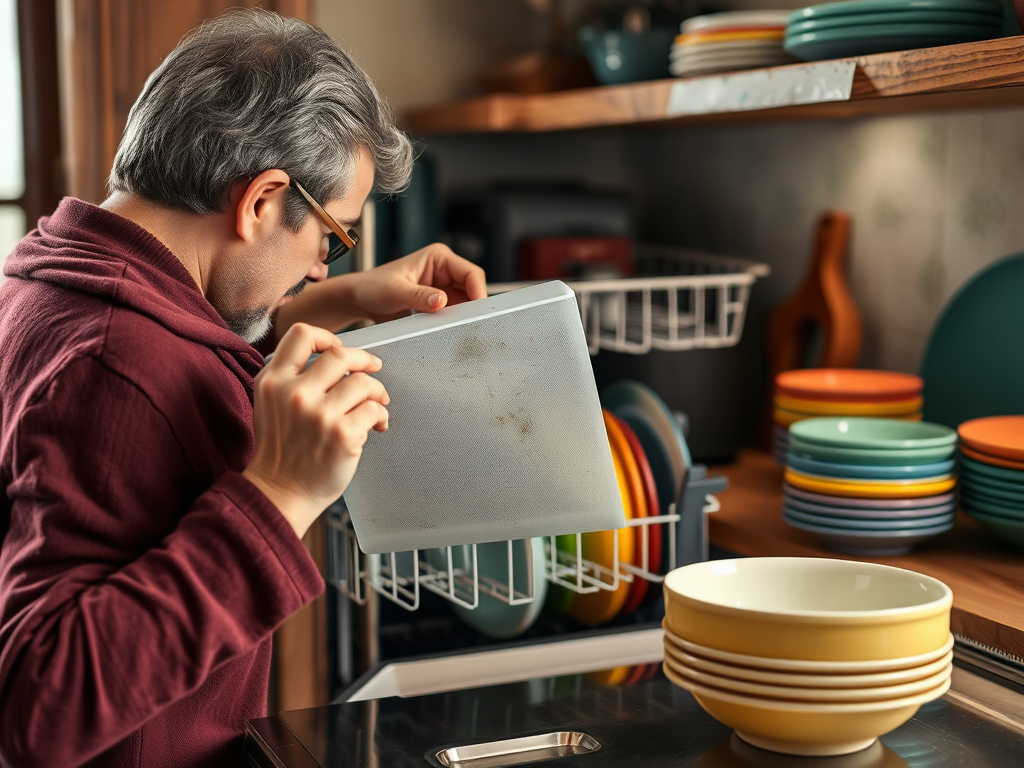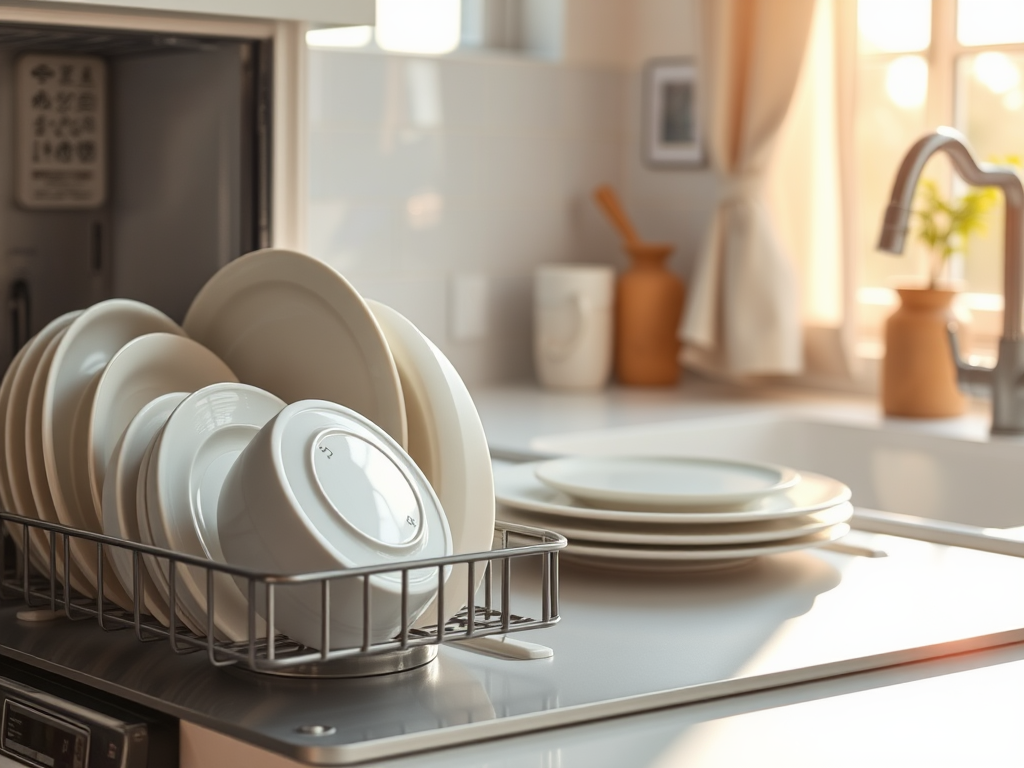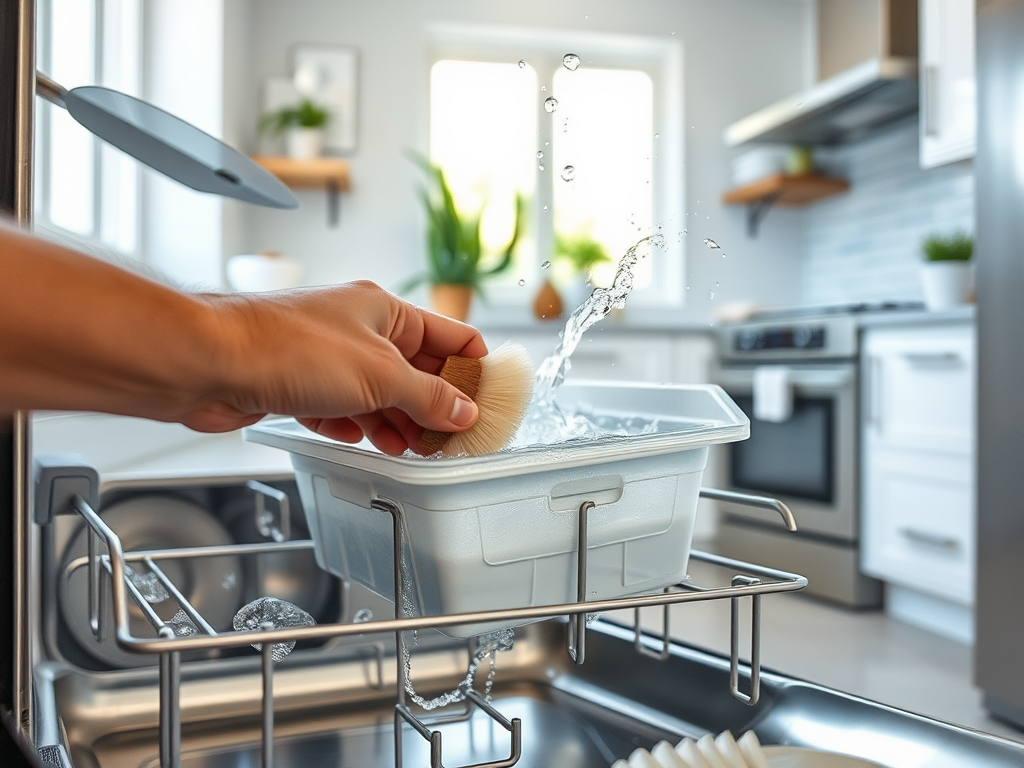Every modern kitchen is equipped with a dishwasher, a convenience that has transformed meal cleanup into a hassle-free experience. However, many homeowners overlook one essential component that directly impacts its efficiency: the dishwasher filter. This small but crucial device prevents food particles and debris from recirculating onto your clean dishes and helps the appliance function at its best. Neglecting the filter can lead to unpleasant odors, poor cleaning results, and even costly repairs. Recognizing when your filter is due for a cleaning can be the difference between a shiny dishware experience and a frustrating one. Let’s delve into how you can assess whether your dishwasher filter needs some attention, ensuring your appliance runs smoothly and your dishes remain spotless.
Understanding the Importance of a Clean Dishwasher Filter

The dishwasher filter is designed to trap food remnants, grease, and sediment during the wash cycle. Over time, these elements can accumulate, limiting the filter’s efficacy. For instance, a dirty filter may allow food particles to linger in the machine, leading to unappetizing results on your dinnerware. Moreover, a clogged filter can prevent the dishwasher from draining properly, causing water to pool at the bottom. Regular assessment and cleaning of this filter are integral to maintaining not only the quality of your dishes but also the lifespan of your appliance. In this article, we will guide you through the signs of a dirty filter, how to check it, and effective cleaning methodologies.
Signs That Your Dishwasher Filter Needs Cleaning

Identifying the need for filter cleaning can save you from bigger headaches down the road. Observing specific symptoms as they arise will help you figure out if you need to roll up your sleeves and get to work. Some common indicators include:
- Poor Cleaning Performance: If your dishes come out with food particles still stuck, the filter might be clogged.
- Unpleasant Odors: A build-up can create foul smells, suggesting the filter needs cleaning.
- Water Drainage Issues: If there’s standing water at the bottom post-wash cycle, your filter could be obstructed.
These signs are crucial to monitor for the ongoing health of your dishwasher. It’s essential to act promptly if you encounter any of these symptoms, as they typically indicate a clogged filter needing immediate attention.
The Basics of Checking Your Dishwasher Filter
Knowing how to check your dishwasher filter correctly can make a significant difference in maintaining its performance. It’s a straightforward process, but several steps need to be followed carefully. First, you need to locate the filter, which is typically situated at the bottom of the dishwasher. Consult your user manual if you’re unsure about its exact location. Once located, gently remove the filter by twisting or pulling it out, being cautious not to damage surrounding components. Inspect it for visible debris and any signs of damage. An undamaged filter that is simply dirty can be cleaned effectively, while damaged ones may need replacement.
How to Clean Your Dishwasher Filter
Cleaning your dishwasher filter is not only vital for its operation but also surprisingly simple. With just a few steps, you can restore your filter to optimal condition:
| Step | Action |
|---|---|
| 1 | Rinse off loose debris using warm water and a soft brush. |
| 2 | Soak the filter in warm water mixed with vinegar for 15 minutes. |
| 3 | Gently scrub the filter with a soft brush or cloth. |
| 4 | Thoroughly rinse with warm water and let it dry completely. |
By following these steps, you can ensure that your dishwasher filter is clean and functioning optimally, leading to better overall dishwasher performance. Remember that cleanliness equals efficiency, making year-round maintenance paramount.
Conclusion
Regular assessment and cleaning of your dishwasher filter are essential for maintaining appliance efficiency and ensuring sparkling clean dishes. By recognizing the signs of a clogged filter, knowing how to check its condition, and learning how to clean it effectively, you can prolong the life of your dishwasher and enhance its performance. This simple maintenance task can save you time, money, and the frustration of dealing with poorly cleaned dishes or malfunctioning appliances. Make this part of your regular kitchen maintenance routine to enjoy the full benefits of your dishwasher.
Frequently Asked Questions
- How often should I clean my dishwasher filter? It is recommended to clean your dishwasher filter every 1-3 months, depending on usage.
- Can I run my dishwasher without a filter? No, running your dishwasher without a filter can lead to dirty dishes and potential appliance damage.
- What should I do if my dishwasher still has issues after cleaning the filter? If cleaning the filter doesn’t resolve the problem, check for clogs in the spray arms, drain, or consult a professional technician.
- Is using vinegar a safe method for cleaning my dishwasher filter? Yes, vinegar is a natural and safe cleaning agent that effectively removes grease and odors.
- Do all dishwashers have filters? Most modern dishwashers come equipped with filters. If yours doesn’t, it likely has a different drainage system that doesn’t require manual cleaning.
